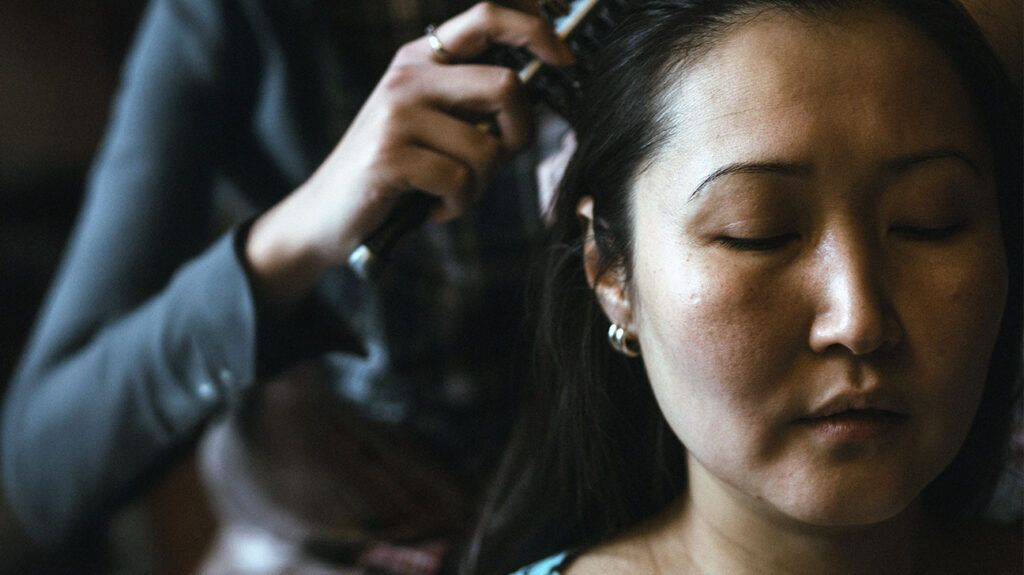Some people may have concerns that creatine can cause hair loss. However, the scientific evidence supporting this claim is limited and inconclusive.
Creatine is a natural compound found in the body, primarily in the muscles, that helps produce energy during high intensity exercise or heavy lifting.
It is also available as a supplement people may use to help improve strength, muscle mass, and athletic performance. Creatine does this by increasing the body’s ability to produce adenosine triphosphate (ATP), which provides energy to cells.
Athletes, bodybuilders, and fitness enthusiasts often take creatine to enhance workout performance and support muscle growth.

The main association between creatine and hair loss stems from a 2009 study among rugby players, which found that taking creatine might increase dihydrotestosterone (DHT) levels.
DHT is a hormone that derives from testosterone and has links with hair loss,
- Study limitations: The sample size was small and the study only measured DHT levels, not actual hair loss.
- Lack of direct evidence: No large-scale clinical trials have demonstrated that creatine directly causes hair loss, and most anecdotal reports have not established a clear causal relationship.
- Genetics: Hair loss, particularly male pattern baldness, is mainly influenced by genetics. People with a predisposition to hair loss may notice thinning hair regardless of creatine use.
Read more about male pattern baldness.
Is hair loss from creatine permanent?
The only potential link between creatine and hair loss appears to be an increase in DHT levels. DHT is a hormone that
However, any potential hair loss from creatine would most likely be reversible once DHT levels return to normal after stopping creatine supplementation. Creatine itself does not directly damage hair follicles. The concern is more about the hormonal shift it might cause in some people.
If someone has concerns about potential hair loss from creatine, the following strategies may help mitigate the risk. However, it is important to note that the link between creatine and hair loss is still speculative.
- Proper dosing: Doctors typically recommend a daily dose of 3 to 5 grams (g), after an optional loading phase of around 20 g per day (divided into smaller doses) for 5 to 7 days.
- Hydration: Staying well-hydrated throughout the day is important to avoid dehydration and reduce the risk of cramps.
- Split doses: If stomach upset occurs, people can consider splitting their creatine dose into smaller portions throughout the day.
- DHT blockers: People can consider using over-the-counter or prescription DHT-blocking shampoos or treatments, such as finasteride or saw palmetto, which can reduce the effects of DHT on hair follicles.
People with a family history of male pattern baldness or existing concerns about hair loss might wish to consult a dermatologist or healthcare professional before starting to take creatine supplements. These professionals can offer advice and suggest preventive measures, including medical treatments, if necessary.
Anyone with preexisting kidney or liver conditions should also consult a healthcare professional before beginning creatine supplementation.
Creatine is one of the most researched fitness supplements, and experts consider it safe for most people who take it in recommended doses. However, like any supplement, it can have side effects, particularly when a person takes it improperly or in high amounts.
These side effects can include:
- Gastrointestinal issues: Taking too much creatine or not staying hydrated may result in stomach cramps, bloating, diarrhea, and nausea.
- Kidney stress: There are concerns about creatine’s effects on kidney function among people with preexisting kidney conditions. However, there is no
strong evidenceTrusted Source of harm in people without these conditions. - Muscle cramps: Water retention may cause shifts in electrolytes, leading to muscle cramps, especially if a person’s hydration and electrolyte levels are too low.
- Potential liver issues: Takings high doses of creatine in the long term have raised concerns about liver function, though no strong evidence links it to liver damage in people who have no health conditions.
- Increased risk of injury: Rapid increases in muscle mass from creatine may lead to imbalances between muscle strength and tendon durability, increasing the risk of strains or injuries.
- Suppression of natural creatine production: Creatine supplementation may temporarily reduce the body’s natural creatine production, which typically returns to normal after stopping use.
- Mood and behavioral changes: Anecdotal reports suggest possible mood changes or increased aggression, though these are not well supported by evidence and may be related to workout intensity.
While experts widely regard creatine as one of the most effective supplements for increasing strength, muscle mass, and exercise performance, some people may seek alternatives due to personal preferences, specific fitness goals, or concerns about side effects.
Potential alternatives include:
Many substitutes offer unique benefits, but no single supplement can exactly replicate creatine’s combination of increased muscle size, strength, and performance enhancement. The most suitable alternative for a person to take will depend on their fitness goals.
While there is some association between creatine and increased dihydrotestosterone, the evidence that creatine causes hair loss is weak.
Most people who use creatine, particularly those without a genetic predisposition to baldness, are unlikely to experience hair loss as a result of supplementation.
People who are concerned about hair loss can consult a healthcare professional for advice.

